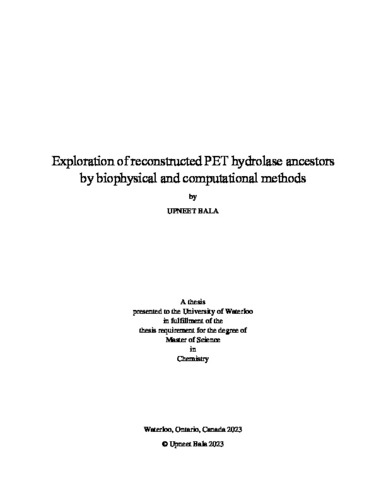| dc.description.abstract | Ancestral sequence reconstruction (ASR), originally developed for the study of molecular evolution, has gained attention as a promising method for protein engineering in the recent decade. The ancestors revived by this technique have often exhibited valuable traits such as improved stability, activity, and substrate promiscuity. Currently, at each stage of the design many non-trivial user decisions are required, specifically for the curation of the multiple sequence alignment and subsequent analysis. Here, we provide a glimpse into the ancestral sequence reconstruction for PET-hydrolases. Ideonella sakaiensis PETase has been acclaimed for its ability to hydrolyze polyethylene terephthalate, and is desired for potential applications to green plastic recycling. The natural enzyme however suffers with low stability in even moderate conditions. We hypothesized by including active and thermostable homologs in the phylogenetic tree, we could probabilistically combine their properties to create a more thermostable and active ancestor. These ancestors were vetted computationally and experimentally using molecular dynamics (MD), circular dichroism (CD), Fourier-transform infrared spectroscopy (FTIR), chemical denaturation, and activity assays. Preliminary results show that the expressed ancestors have signs of co-operative folding and secondary structure, but are only marginally stable, aggregation prone, and appear inactive against generic esterase substrates. These qualities are hypothesized to be in part due to the inclusion of non-consensus PETase loops in the multiple sequence alignment, and impaired C-terminal disulfide formation. These results provide a valuable stepping-stone for the next iteration of design of ancestral PET-hydrolases, and enriches the understanding of ASR outcomes to the larger research community. | en |

